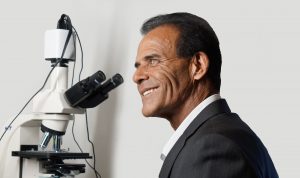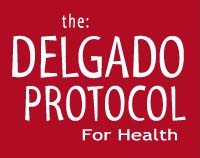6 Estrogen Deficiency Triggers
Estrogen is the primary female sex hormone and it plays a major role in both reproduction and in the development and maintenance of female sex characteristics. Like all hormones, estrogen levels need to be maintained within a delicate balance; when they rise too high a harmful health condition called estrogen dominance occurs, and when they fall too low, a wide-range of troublesome symptoms set-in. There are many different estrogen deficiency triggers, and below is a list of the 6 most common.
Estrogen Deficiency Basics
 There are 3 major types of estrogen, and estradiol is the most potent and the one that is most often measured when checking for an estrogen deficiency. Some of the most common symptoms of estrogen deficiency include: brain fog, forgetfulness, fatigue, depression, anxiety, insomnia, hot flashes, night sweats, dry eyes, weight gain, joint pain, loss of libido, menstrual irregularity, infertility, headaches, and hair loss. An estrogen deficiency can also increase the risk for osteoporosis, cardiovascular disease, and heart disease. If you experience 3 or more of the above symptoms and one of the below estrogen deficiency triggers applies to you, then you should have your estradiol levels measured.
There are 3 major types of estrogen, and estradiol is the most potent and the one that is most often measured when checking for an estrogen deficiency. Some of the most common symptoms of estrogen deficiency include: brain fog, forgetfulness, fatigue, depression, anxiety, insomnia, hot flashes, night sweats, dry eyes, weight gain, joint pain, loss of libido, menstrual irregularity, infertility, headaches, and hair loss. An estrogen deficiency can also increase the risk for osteoporosis, cardiovascular disease, and heart disease. If you experience 3 or more of the above symptoms and one of the below estrogen deficiency triggers applies to you, then you should have your estradiol levels measured.
Trigger #1: Menopause
 Menopause causes the ovaries to release less hormones and this naturally occurring process is the leading cause of an estrogen deficiency. Fortunately, most of the side-effects associated with menopause can be negated by replacing estrogen with hormone replacement therapy (HRT). Worth noting, is the fact that estrogen deficiency and its symptoms can develop post-menopause, and both menopausal and post-menopausal women may benefit from a combination of transdermal estradiol and natural progesterone.
Menopause causes the ovaries to release less hormones and this naturally occurring process is the leading cause of an estrogen deficiency. Fortunately, most of the side-effects associated with menopause can be negated by replacing estrogen with hormone replacement therapy (HRT). Worth noting, is the fact that estrogen deficiency and its symptoms can develop post-menopause, and both menopausal and post-menopausal women may benefit from a combination of transdermal estradiol and natural progesterone.
Trigger #2: Premenopausal Hormone Changes
 Pre-menopause is the period of time leading up to menopause when the ovaries start to age and hormone production begins to decline. Although a female is still menstruating during this time, it is quite common for a deficiency of estrogen and/or progesterone to have already developed. For these women, transdermal estradiol is recommended, but instead of taking it continually, estradiol should be taken for 2 weeks at the beginning of the menstrual cycle, and progesterone should be given for the second half of the cycle.
Pre-menopause is the period of time leading up to menopause when the ovaries start to age and hormone production begins to decline. Although a female is still menstruating during this time, it is quite common for a deficiency of estrogen and/or progesterone to have already developed. For these women, transdermal estradiol is recommended, but instead of taking it continually, estradiol should be taken for 2 weeks at the beginning of the menstrual cycle, and progesterone should be given for the second half of the cycle.
Trigger #3: The Birth Control Pill
 The pill stops ovulation and completely shuts down estradiol. Even though the birth control pill contains estradiol, the dose may be too low to offset this effect, and an estrogen deficiency can result. If a blood test shows a deficiency of estradiol, transdermal estradiol and progesterone can be given, in a cyclic way similar to the schedule for premenopausal-estrogen-deficient women.
The pill stops ovulation and completely shuts down estradiol. Even though the birth control pill contains estradiol, the dose may be too low to offset this effect, and an estrogen deficiency can result. If a blood test shows a deficiency of estradiol, transdermal estradiol and progesterone can be given, in a cyclic way similar to the schedule for premenopausal-estrogen-deficient women.
Trigger #4: Childbirth
 Childbirth causes a major dip in progesterone, which can lead to mood changes, menstrual problems, extreme fatigue and post-partum depression. In most cases, post-partum side-effects are caused because estrogen levels are too high in relation to progesterone, so progesterone replacement alone is necessitated. However, estrogen levels should be measured prior to any therapy because there are certain cases where an estrogen deficiency is actually to blame.
Childbirth causes a major dip in progesterone, which can lead to mood changes, menstrual problems, extreme fatigue and post-partum depression. In most cases, post-partum side-effects are caused because estrogen levels are too high in relation to progesterone, so progesterone replacement alone is necessitated. However, estrogen levels should be measured prior to any therapy because there are certain cases where an estrogen deficiency is actually to blame.
Trigger #5: Extreme Exercise or Disordered Eating
 Over-exercising places a lot of stress on the body and can lead to a deficiency of female hormones. Anorexia nervosa and bulimia can also cause a deficiency of estrogen and/or progesterone, and when this occurs, a woman’s sex drive and feminine characteristics may disappear. An inability to conceive may also arise, and menstruation may cease. Fortunately, replacing deficient female hormones can reverse these effects and help to restore a woman’s sense of ‘being a woman.’
Over-exercising places a lot of stress on the body and can lead to a deficiency of female hormones. Anorexia nervosa and bulimia can also cause a deficiency of estrogen and/or progesterone, and when this occurs, a woman’s sex drive and feminine characteristics may disappear. An inability to conceive may also arise, and menstruation may cease. Fortunately, replacing deficient female hormones can reverse these effects and help to restore a woman’s sense of ‘being a woman.’
Trigger # 6: PCOS or Turner Syndrome
Polycystic ovarian syndrome (PCOS), is a hormone disorder with a wide range of symptoms. PCOS is often associated with irregular estrogen levels, and a deficiency of estrogen is particularly common in PCOS sufferers with low body fat. Turner syndrome is a genetic disorder where a woman has one X chromosome instead of two. Most women with Turner’s syndrome also experience ovarian failure, which can lead to a severe estrogen deficiency. These women typically require estrogen therapy throughout their reproductive years.
Information for this article was provided by Doctor Thierry Hertoghe: http://www.hertoghe.eu/en/



